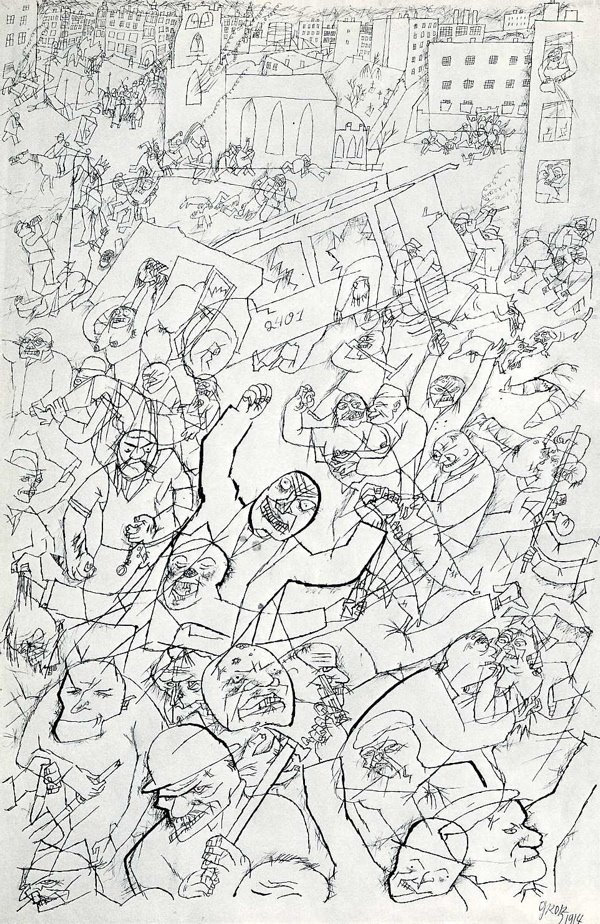Gerry Canavan has a nice post up quoting a 1946 Atlantic Monthly review of James Joyce's major works, Portrait, Ulysses, and Finnegan's Wake:
Those who confuse a writer with his material find it all too easy to make a scapegoat out of Joyce. They make Proust responsible for the collapse of France because he prophesied it so acutely; and, because Joyce felt the contemporary need to create a conscience, they accuse him of lacking any sense of values. Of course it is he who should be accusing them. His work, though far from didactic, is full of moral implications; his example of aesthetic idealism, set by abnegation and artistry is a standing rebuke to facility and venality, callousness and obtuseness. Less peculiarly Joycean, and therefore even more usable in the long run, is his masterly control of social realism, which ingeniously springs the varied traps of Dublin and patiently suffers rebuffs with Mr. Bloom. The heroine of Stephen Hero, who has almost disappeared from the Portrait, says farewell after "an instant of all but union." By dwelling upon that interrupted nuance, that unconsummated moment, that unrealized possibility, Joyce renews our apprehension of reality, strengthens our sympathy with our fellow creatures, and leaves us in awe before the mystery of created things.
It seems to me that this post contradicts
Gerry's approving citation of
Stanley Fish's invective against the humanizing effects of education in the humanities. I think it's odd how Joyce is always held up as a paradigm of everything beautiful and great about everyday Life (even by post-humanist-minded professor-types), and yet asked to bear the weight of contemporary theory's sharp turn away from such saccharine notions of literature's ability to ennoble the soul. My personal feeling is that Joyce does the former much better than the latter, and perhaps the best argument against Fish is that the professional critics he cites as exemplars of literature's moral inefficacy are not average readers because they read with ill intent--to gain professional knowledge, as he says. But isn't that the hubris of the academy--to presume that everybody reads like professors, thinks (or should think) like professors, and that they have a monopoly on real truth? While I acknowledge my own indebtedness to Fish (he practically made the department in which I now study), I can't help but dismiss him as a curmudgeonly old coot whose own sense of intellectual heartburn discredits any and every pronouncement he makes about literature. That's not to say that I think we should indulge the kind of idealism of the above reviewer too deeply; everything depends on how we appropriate (or fail to appropriate) literary text--on how they are taught. But giving up on Joyce's ability to teach us something about how to live, about the intricate and mundane beauties of the everyday, of what Werner Herzog would call "ecstatic truth," is to relegate Joyce to the margins of the canon. And no matter how often a Fish attempts to discredit the ability of a Joyce to do this kind of work, Joyce continues to assert itself for just that purpose. And it is in this light, I think, that the 1946 review above seems not so antiquated as it does continually relevant.


